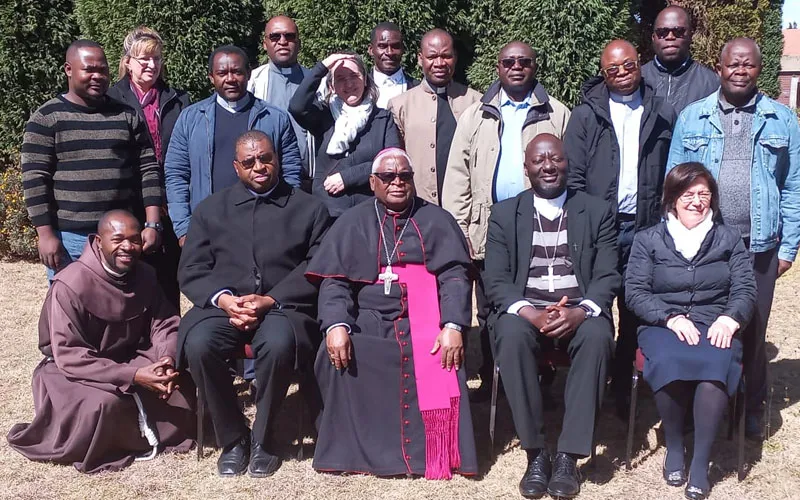“Every mine that is set up in Rustenburg Diocese falls within a particular Parochial territory, meaning that there must be a Priest who in his pastoral care is also expected then to reach out to any Catholic community that is attached to the mines,” the native of South Africa’s Pretoria Archdiocese told ACI Africa August 31.
He continued, “It is the responsibility of that Parish Priest, together with the Parish community, to make sure that all the new arrivals who are Catholic are welcomed, that they are invited to participate in the life of the local church; and also, to see how then the local church can then respond to their spiritual needs and their Sacramental life.”
Turning his attention to the migrants, the Bishop who has been at the helm of Rustenburg Diocese since his Episcopal Ordination in February 2021 advocated for their effort to integrate with members of the local Church.
“As a Catholic community, wherever we find ourselves and there's a local Church by nature, we are supposed to become part of the local Church because we are not a nationalistic kind of Churches, but rather we are a Catholic Universal Church,” said Bishop Mphiwe referencing migrants in South Africa.
He added, “Wherever we find ourselves, a Catholic would want to become part of the local Church without dismissing or setting aside their own heritage, their own experiences of where they grew up as Catholics.”
“As much as it is important that migrant workers integrate into the hosting communities and local Church, there's nothing wrong according to me that they continue to meet, as Catholics from a particular country or from a particular region in their country, to come together and pray together,” the South African Catholic Bishop said.
Migrants also need to “become integrated in the larger community, especially when they have started to have families and because those families are part of the community,” Bishop Mphiwe told ACI Africa during the August 31 interview.
“So, it is important that they celebrate their own identity, their own nationality, their own cultures,” he emphasized in reference to migrants, and added, “But another reality is that they've got families that are part of the local church and therefore they are encouraged to become part of the local Church.”
Sheila Pires is a veteran radio and television Mozambican journalist based in South Africa. She studied communications at the University of South Africa. She is passionate about writing on the works of the Church through Catholic journalism.








